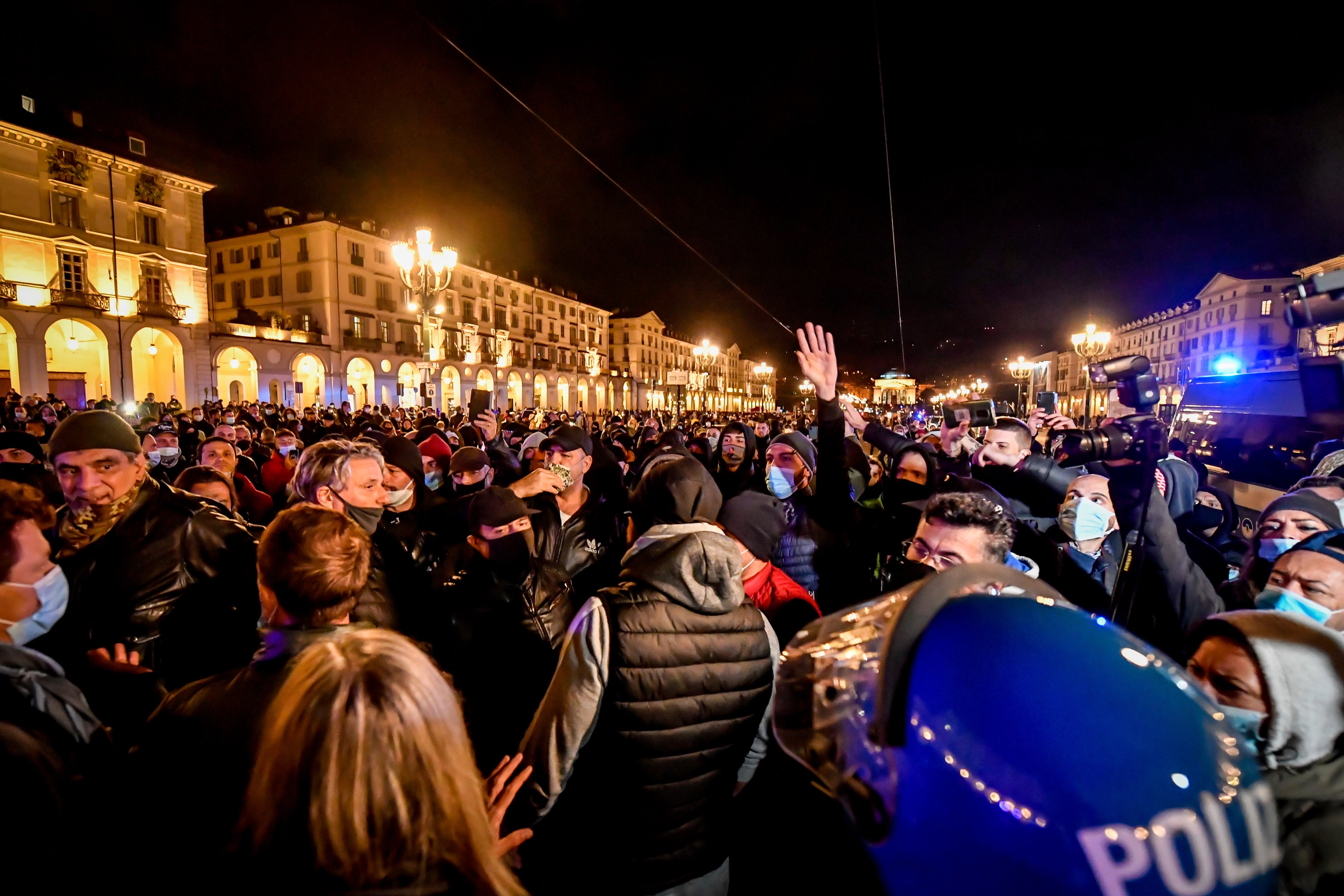Italy protests: Violence erupts in Milan and Turin over new Covid restrictions
Italians have turned out by the hundreds in several cities and towns to vent anger, sometimes violently, over the latest pandemic restrictions that force restaurants and cafes to close early and shutter cinemas, gyms and other leisure venues

Protesters turned out by the hundreds in Turin, Milan and other Italian cities and towns Monday to vent their anger, sometimes violently, at the latest pandemic restrictions that force restaurants and cafes to close early and shutter cinemas gyms and other leisure venues.
In the northern city of Turin, some demonstrators broke off from a peaceful protest, smashing store windows on an elegant shopping street, setting smoke bombs and hurling bottles at police in a main city square where the Piedmont regional government is headquartered, RAI state TV said.
A photographer was injured by a hurled bottle, RAI said. Police fired tear gas to clear the protesters in Piazza del Castello.
In that same square, hours earlier, some 300 taxis peacefully lined up in neat rows to draw attention to their economic losses from the implosion of tourism and disappearance of workers from the city center as they do their jobs remotely during the pandemic.
Triggering the violence in Turin were a group of “ultras,” as violent soccer fans are known, the LaPresse news agency said. It said five of the protesters were detained by authorities.
In Italy’s business capital, Milan, police used tear gas to scatter protesters Monday night, and an Associated Press journalist saw at least two people detained.
The protests began shortly after the national government's order took effect requiring bars, cafes and restaurants to close their doors at 6 p.m. for the next 30 days as Italy tries to rein the resurgence of coronavirus infections in recent weeks.
Since most Italians don't dine out before 7:30 p.m. at the earliest, the decree effectively wiped out most of the restaurants' already reduced revenue in the pandemic, although takeout and delivery can continue until midnight.
The crackdown was announced Sunday, a day after Italy registered more than a half million confirmed coronavirus cases since the pandemic's outbreak.
Last week, a peaceful march by shopkeepers and other business owners in Naples, upset about a regional curfew that orders citizens off the streets at 11 p.m., turned violent near the Campania region's headquarters. Investigators were quoted in Italian media as saying the violence, in which police officers were injured, bore the hand of the Camorra, the local organized crime group.
A day later, an extreme right political group staged a violent demonstration in downtown Rome.
Smaller cities, including Catania in Sicily, and towns also saw protests Monday. In Cremona, a town in northern Lombardy, restaurant owners turned out in front of the local interior ministry's office. After banging pots and bans, they left them piled up in the street to highlight their economic woes worsened by the latest early-shutdown decree, the ANSA news agency said.
___
Associated Press journalist Andrea Rosa reported this story in Milan and AP writer Frances D'Emilio reported from Rome.
Bookmark popover
Removed from bookmarks